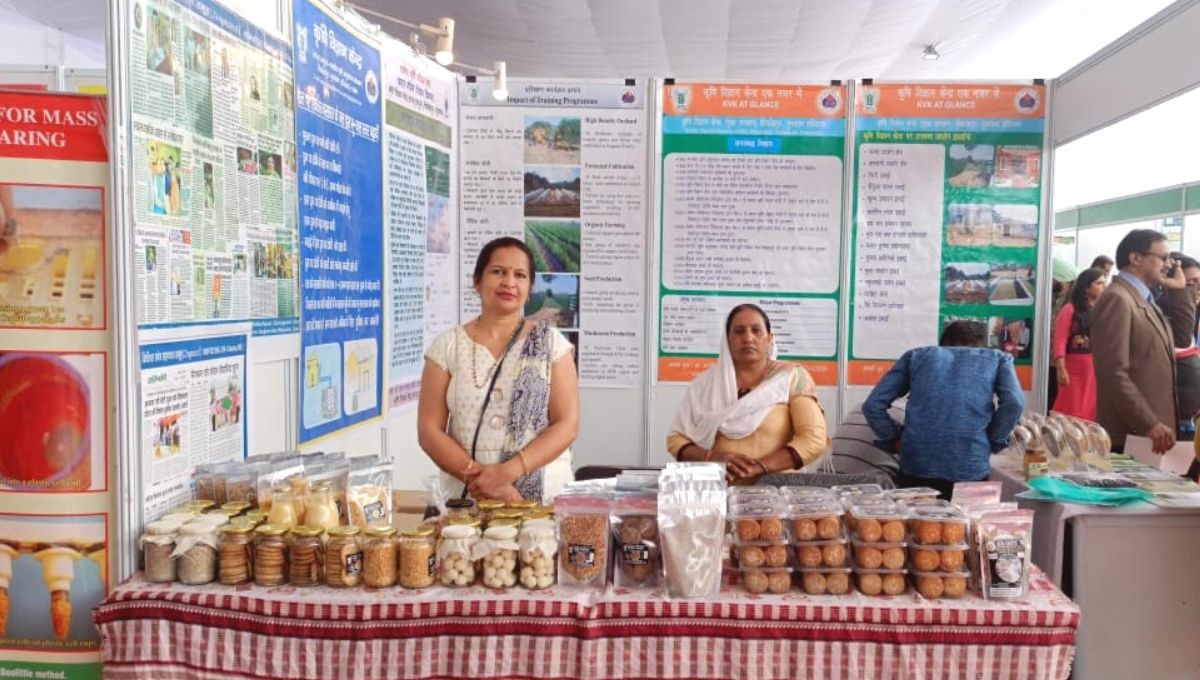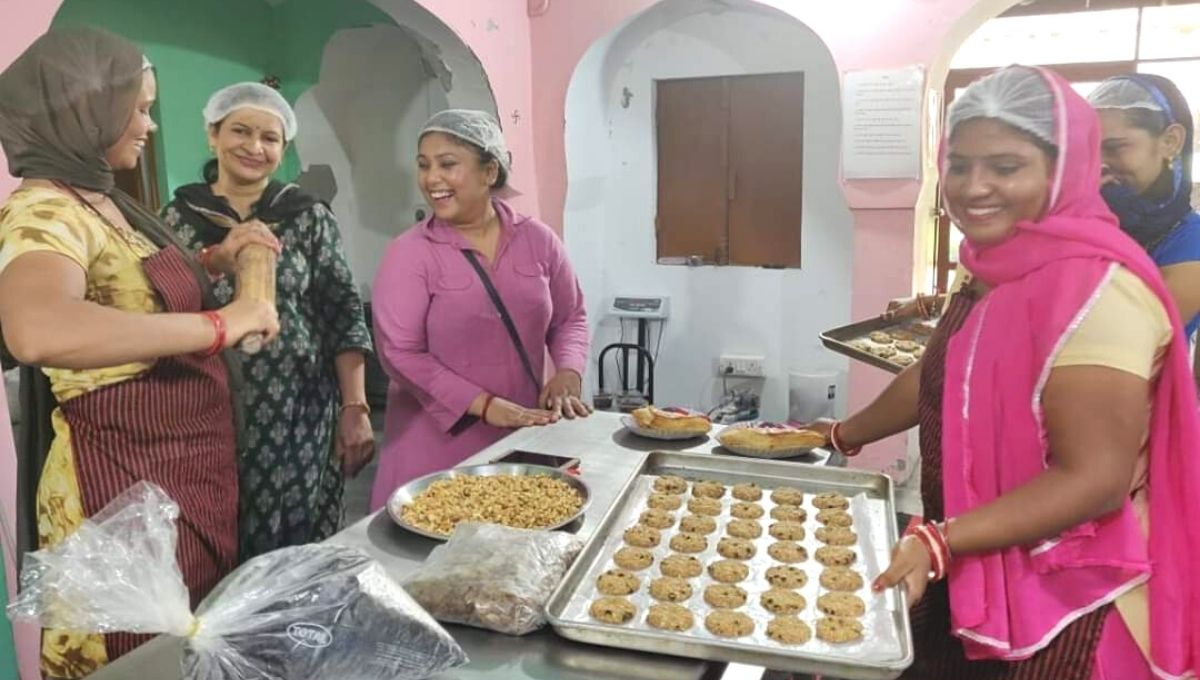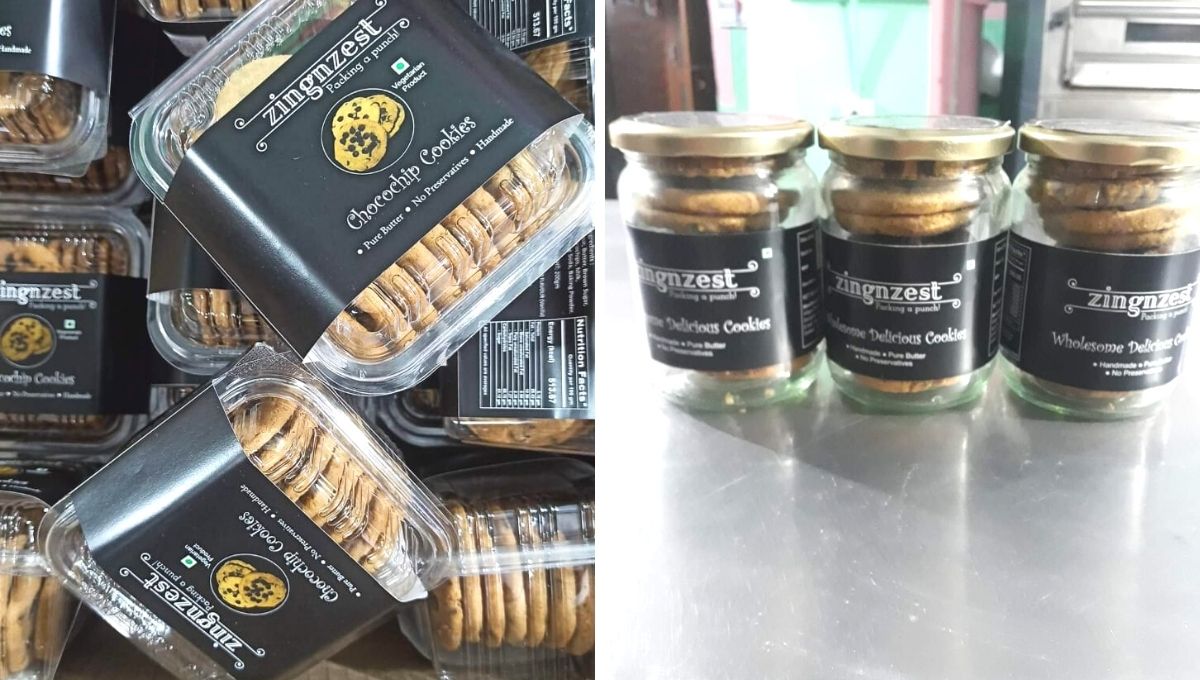Most girls in Bakra village of Haryana didn’t study beyond Class 5, and those who did had to walk 5 km to get to the neighbouring Beri village to pursue their Class 10.
After that, the girls would get married and spend the rest of their lives tending to cattle, farm chores and their children.
Pooja Sharma, a native of the village, was one such girl. “I was born in the 80s and married at the age of 20. My parents did not allow me to pursue studies beyond Class 10 as it would require me to study in a co-ed institute. They weren’t comfortable with that thought,” she recalls.
Pooja married in 1999 and soon gave birth to two daughters and a son by 2004. However, the family started struggling financially, owing to increased expenses.
“My husband and I separated from our joint family, and he earned a meagre Rs 4,000 per month by working in agriculture. We did not want to move towards the city for employment opportunities as it would entail an increase in expenses,” she says.

So, the couple borrowed money from friends and family to buy an empty plot located in the outskirts of the village to live. “The plot was opposite a dilapidated mansion, about 300 years old. People believed it to be haunted and avoided passing that area. I had heard about some incidents describing the same. But I braved the situation as it was all we could afford,” she admits.
Interestingly, a few years later, Pooja set up a manufacturing unit for making homemade cookies in the same “haunted house” that earns her lakhs and helps empower hundreds of women in the region.
A Haunting Success
Speaking about her life-changing journey Pooja says that to support her husband, she found a job with an NGO in 2008 and earned Rs 2,500 a month.
“In 2013, some officials from Krishi Vigyan Kendra (KVK) approached the villagers to offer lessons in sewing to provide livelihood opportunities. But I felt the proposal wasn’t financially viable. I informed them that sewing would not help increase women’s income significantly. We needed something unique,” says the 42-year-old.
A few days later, the KVK officials returned with a suggestion of training women to prepare and sell roasted soybean as a healthy snack.
“I was given the task to identify 10 women willing to undergo training for a week in Gurugram. After their selection and training, we needed equipment like a microwave oven and capital to buy raw materials to start the business,” she says.

Pooja managed to get a loan of Rs 10,000 from a private bank to launch their venture — Kshitiz group. Though she overcame one financial hurdle, other socio-cultural challenges awaited her.
“The women never ventured out of their homes, and their husbands, including mine, resisted their employment. I spent weeks convincing my husband, facing taunts from the locals. Finally, I convinced him by assuring him that the venture would help increase income and benefit our children. He gradually started accompanying me to purchase raw materials and market them too,” she says.
Pooja says the women started offering their product, roasted soybean, in exhibitions and local markets. But they realised the need for presenting a wide variety of products.
“With some market research, we learned about other healthy snacks and started preparing laddus, cookies made from wheat, soy sticks and items made from bajra, jowar, among others,” she says, adding that the food was appreciated and the business picked up.
Pooja says that all the raw material for the production is sourced from local farmers. “We prepare all the products from scratch. The wheat and bajra are ground into flour by us, after which the preparations begin. All products are quality checked and that’s the reason for the high demand for our products from the market,” she says.
Warding Off Negativity
“I have formed nine groups of 130 women who prepare 60 varieties of homemade food products. We learned to make cookies from a Mumbai-based chef. Many of our products, such as cookies and biscuits, have a high demand in five-star hotels like Hyatt, Aerocity and others. The cookies are sold under the brand Zingnzest. The business earns Rs 8 lakh per year,” she explains.
Pooja says that the nine groups are governed by PV Sahyog Mahila Gram Sanghatan, a democratically elected women’s body where the stakeholders contribute Rs 10 daily. “We have raised a capital of Rs 4.5 lakh and disbursed it to women who were in need of starting their business. This way, the community is never short of funds,” she says.
Besides making the women from her village financially independent, Pooja has reached out to women from Madhya Pradesh and parts of the country to train them in the snack business. “I have trained about 1,000 women so far,” she says.

The Haryana government appreciated Pooja’s contribution towards empowering women in the form of the Agriculture Leadership award in 2015 and an innovative farmer award in 2016, among others that followed.
Speaking of her rewarding experiences, Pooja notes, “I had never travelled by air or moved across different parts of India. But the initiative has allowed me to experience all of it. I am confident that farmer’s can triple their income, if more women entrepreneurs join and assist in the agro-processing industry.”
Babita, one of the self-help group (SHG) members, says, “I have been a member of this SHG since 2017 and joined the venture to provide financial support to my family. I earn Rs 10,000 per month, which has helped provide a better education for my son in a private school.”
She urges more women to join their business. “Today, I do not rely on my husband for my financial needs. I have earned respect in the family and neighbourhood. Travelling for a business purpose allows me to interact with people and learn from their experiences,” she says.
Speaking about the haunted mansion, Babita adds, “A common superstition circulated in the village was not to consume sweet food items from us or venture near the mansion. But today, all the women prepare and consume sweets for quality check, sitting inside the building. Everyone is healthy and living their best life.”
Reciprocating similar sentiments, Pooja says that what residents considered an inauspicious place has proven to be a prosperous prospect for her and hundreds of others. “I believe that hard work and sincerity can ward off any negativity,” she says.
Edited by Yoshita Rao
No comments:
Post a Comment